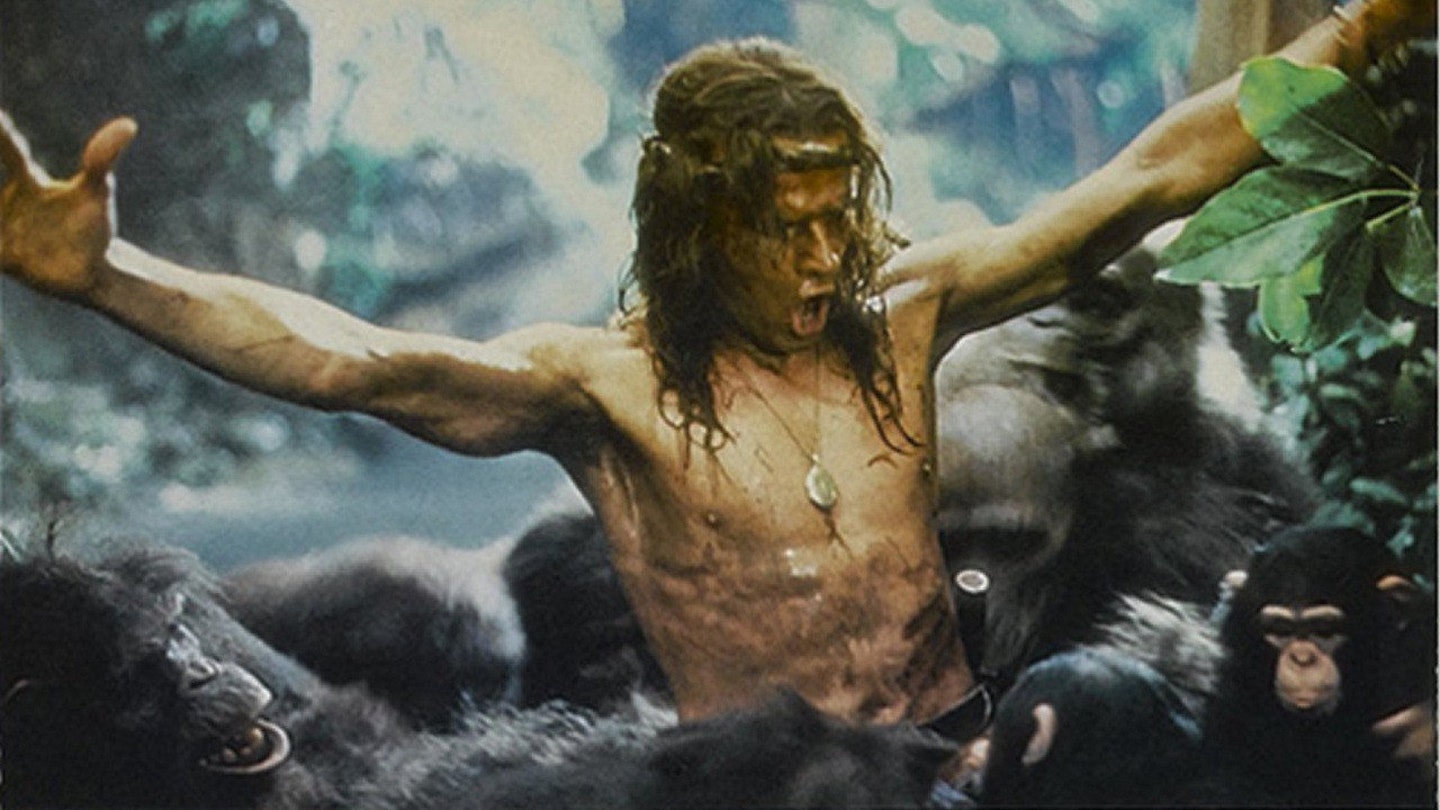Returning to the grittier trail of Edgar Rice Burrough’s original novel, Hugh Hudson, fresh from his Chariots Of Fire glory, attempts to bring a naturalism to the classic tale of the ape-man Tarzan. It’s a worthy idea, but as rich in historical detail and sumptuous with earthy design as the film is, it’s a story that can’t take the strain of realism.
As Christopher Lambert, clutched from the banks of obscurity, rattles around the great dining room of his new home, his limbs lolloping and grunting like a constipated pig, the stiff poise Hudson adopts crashes into ruin. This film is utterly ludicrous, po-faced, and overcrowded with empty meaning, leaving you recalling the pulp days of Johnny Weissmuller like great art.
We should heeded the warning of the gaggle of men-in-suits for a gorilla community, and that the re-fangled storyline (Jane doesn’t event get to Africa) dodges the cool swinging through trees caterwauling stuff for a weird, interminable satirical examination of British manners. The film spends an age comparing the “savagery” of this new arrival who doesn’t take well to table manners, with the brute bigotry of the aristocracy. For a Tarzan film its tortuously slow. Having grown with a kind of Simian purity, it is only natural for Clayton/Tarzan to reject “civilisation” for the freedom of the wild. Wow, deep.
Everyone gives that kind of furrowed brow performance, pronouncing their words like the kicking of mud off heels (except that is for Andie MacDowell’s Jane, whose baby tones were dubbed over by Glenn Close), desperate to adds layers of importance to what should just be a good-looking adventure movie. Lambert, of course, really goes for it in what would politely be called a physical transformation, but if we’re being honest this is just a bad French actor getting away with his awful pronunciation.
